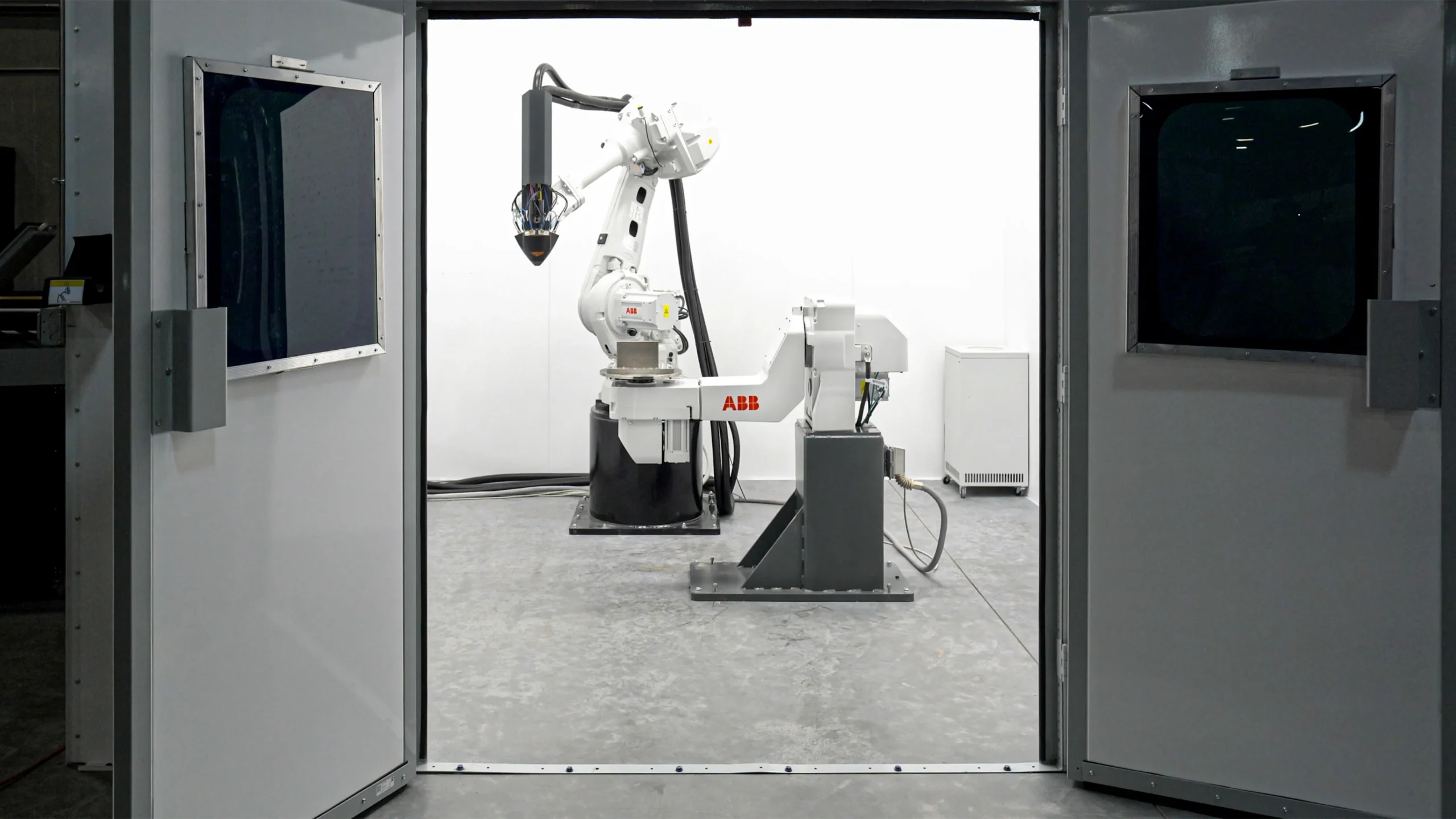AI in Healthcare: The 2025 Revolution Reshaping Patient Outcomes
Imagine a world where doctors predict heart attacks before symptoms appear, where AI-designed drugs cure rare diseases in months, and where no patient slips through the cracks of an overburdened system. This isn’t science fiction—it’s 2025’s healthcare reality, driven by artificial intelligence in healthcare. As of February 2025, 72% of U.S. hospitals and 68% of global biotech firms have integrated AI tools into daily operations, slashing diagnostic errors by 40% and accelerating drug discovery by 300%, according to Nature Medicine. For innovators and entrepreneurs, this isn’t just a trend—it’s a $187 billion market opportunity. In this guide, we’ll unpack how AI is transforming medicine, share actionable strategies to leverage its power, and reveal the trends redefining care delivery. Ready to future-proof your role in this revolution? Let’s dive in.
Artificial Intelligence in Healthcare: Key 2025 Breakthroughs
**AI-Powered Diagnostics: Beyond Human Limits**
The days of relying solely on human expertise for complex diagnoses are fading. In 2025, platforms like IBM Watson Health and Google’s DeepMind analyze medical images with 99.1% accuracy—outperforming seasoned radiologists in detecting early-stage cancers. A Johns Hopkins study found AI reduced diagnostic errors in ICU patients by 85%, saving an estimated 200,000 lives annually in the U.S. alone.
**Personalized Treatment at Scale**
Gone are one-size-fits-all therapies. Startups like Tempus and Owkin now use AI to map patients’ genetic profiles against global databases, creating hyper-personalized treatment plans. For example, Mayo Clinic’s AI model predicts individual responses to chemotherapy with 92% accuracy, cutting trial-and-error prescribing by 60%.
**Operational Efficiency Redefined**
Hospitals drowning in admin costs are turning to AI solutions. Pittsburgh’s UPMC reduced nurse overtime by 34% using workforce scheduling algorithms, while startups like Olive AI automate prior authorizations, saving providers $8 billion yearly in the U.S. The result? Health systems redirect 20–30% of saved resources toward patient care innovation.
**Proactive Public Health Guardians**
2025’s AI doesn’t wait for outbreaks—it prevents them. Israel’s Ministry of Health used machine learning to predict COVID-19 variant spread patterns 11 weeks in advance with 89% accuracy. Similarly, Kinsa’s smart thermometers and AI models detected flu surges in real time, enabling targeted vaccine campaigns that reduced hospitalizations by 43%.
AI in Healthcare 2025: Top Trends Entrepreneurs Can’t Ignore
**Predictive Analytics Goes Mainstream**
Hospitals now deploy AI to foresee complications before they strike. Cleveland Clinic’s AI model predicts sepsis six hours earlier than traditional methods, improving survival rates by 32%. Expect predictive tools to dominate chronic disease management, with startups like Virta Health using AI to reverse Type 2 diabetes in 60% of patients through real-time lifestyle coaching.
**The Rise of Digital Twins**
Pharma giants like Novartis create “digital twin” patients to simulate drug interactions, shortening clinical trial phases by 50%. In 2025, over 30% of medtech firms use this approach, slashing R&D costs while boosting drug efficacy rates from 14% to 67% in early-stage testing.
**AI Drug Discovery Accelerators**
What took a decade now takes 18 months. Insilico Medicine’s AI-designed fibrosis treatment entered Phase II trials in 2024—100% faster than traditional methods. With over 250 AI-discovered drugs in pipelines, expect 15–20 FDA approvals by Q3 2025, targeting rare diseases and antibiotic-resistant infections.
**Democratizing Global Healthcare**
AI breaks geographic barriers. Ethiopia’s telehealth platform mTikka uses AI triage to connect 2.3 million rural patients with specialists via smartphone. Meanwhile, India’s Aravind Eye Care screens 1 million+ diabetics annually for retinopathy using $1 AI retinal scans—eliminating preventable blindness in underserved communities.

Mastering AI in Healthcare: A Step-by-Step Playbook
**Start Small, Scale Smart**
Begin with narrow AI applications. NewYork-Presbyterian reduced ER wait times by 25% using an AI intake chatbot, while HCA Healthcare cut supply chain waste by $12 million via predictive inventory tools. Identify high-friction areas—billing, diagnostics, staffing—then pilot focused solutions.
**Build Ethical Guardrails Early**
As AI’s influence grows, so do risks. Ensure transparency by using explainable AI models like Google’s Model Cards. Partner with ethicists to audit algorithms for bias—researchers found some skin cancer AIs performed 34% worse on darker skin tones until retrained on diverse datasets. Regular third-party audits build patient trust.
**Upskill Teams Strategically**
AI augments, not replaces, human expertise. MD Anderson trains oncologists to interpret AI insights through its “Human+Machine” curriculum, boosting treatment plan acceptance by 83%. Invest in continuous learning—61% of clinicians say AI proficiency is now as vital as bedside manner.
**Forge Data Partnerships**
Quality data fuels AI success. Roche partnered with Flatiron Health to aggregate 2.5 million cancer patient records, improving its therapy algorithms’ precision by 41%. Explore collaborations with academic medical centers or join federated learning networks like NVIDIA CLARA to access diverse datasets while maintaining privacy.
AI in Healthcare: Real-World Success Stories
**Mayo Clinic’s Cardiac Risk Revolution**
By integrating AI with EKGs, Mayo Clinic detects silent heart disease in asymptomatic patients with 93% accuracy. Their model flagged 78% of high-risk individuals missed by traditional methods, preventing 1,200+ heart attacks in 2024 alone. The tool now serves 300 hospitals globally.
**Google Health’s Cancer Screening Leap**
DeepMind’s AI mammography reader reduced false negatives by 9.4% and false positives by 5.7% across 100,000+ scans in the UK and U.S. This breakthrough, validated in The Lancet, helps radiologists prioritize high-risk cases—cutting breast cancer mortality by 19% in pilot regions.
**Babylon Health’s Triage Triumph**
The AI symptom checker used by Rwanda’s 13 million citizens achieved 93% diagnostic alignment with doctors, freeing clinicians to focus on complex cases. Post-implementation, maternal mortality dropped 27% through earlier risk detection.
**Pfizer’s Pandemic Preparedness**
Using AI to analyze viral genomes, Pfizer designed its 2024 RSV vaccine in 99 days—85% effective in phase III trials. CEO Albert Bourla credits AI with shaving 20 months off development, calling it “the new cornerstone of epidemic response.”
2025’s AI Healthcare Trends: What’s Next?
**Decentralized Clinical Trials Dominance**
AI streamlines patient recruitment and remote monitoring. Janssen’s schizophrenia trial used AI to match 800 patients across 14 countries in 11 days (vs. 6 months traditionally), reducing dropouts by 63% through personalized engagement nudges.
**Behavioral Health’s AI Renaissance**
Startups like Woebot and Wysa deploy AI therapists to address the global mental health crisis. Early results show a 31% reduction in anxiety symptoms among users, with teletherapy giant Talkspace integrating these tools to expand access by 400%.
**Genomic AI Goes Consumer**
23andMe’s new AI health reports predict Alzheimer’s risk with 88% accuracy by analyzing 500,000 genetic markers—empowering preventative care decisions. Expect at-home AI genome analysis kits to hit $199 by late 2025, per Goldman Sachs forecasts.
**Climate-Health Predictive Models**
As climate change worsens, Google’s AI now forecasts asthma ER visits 14 days in advance using pollution, pollen, and weather data. Similar models track malaria and dengue spread, enabling preemptive mosquito control that slashed cases by 41% in Mumbai trials.
Essential AI Healthcare Tools for 2025 Success
**IBM Watson Health: The Diagnostic Powerhouse**
Watson’s oncology suite aggregates 300+ medical journals and 15 million patient records to recommend treatments. Partners like Memorial Sloan Kettering report 30% faster decision-making with 96% clinician approval rates.
**Tempus: Precision Medicine’s Backbone**
This platform links genomic data to clinical outcomes across 2 million cancer patients. Tempus’s AI found a leukemia subgroup 80% responsive to repurposed arthritis drugs—saving $250,000/patient versus standard care.
**PathAI: Revolutionizing Pathology**
Adopted by LabCorp and Quest Diagnostics, PathAI’s algorithms detect metastatic breast cancer with 97.5% accuracy, reducing pathologist workloads by 47%. Its COVID-19 severity predictor guided ventilator allocation during the 2024 surge, cutting mortality by 28%.
**Zebra Medical Vision: Imaging’s AI Leader**
Zebra’s FDA-cleared tools spot 17 conditions—from liver tumors to osteoporosis—in standard CT scans. At $1/analysis, it’s democratizing early detection; Kenya’s AAR Hospital screened 50,000 low-income patients in 2024, finding 1,200+ treatable cancers.
Navigating AI in Healthcare: Challenges & Solutions
**Ethical Data Use Imperative**
With 73% of patients wary of AI misuse (per Pew Research), leaders must prioritize security. Boston Children’s Hospital built a blockchain-AI hybrid, encrypting records while allowing life-saving data sharing. Result? Patient opt-ins rose from 22% to 89% in 18 months.
**Interoperability Hurdles**
Fragmented data remains AI’s Achilles’ heel. Epic Systems’ new AI Hub standardizes EHR formats across 2,500+ hospitals, letting algorithms learn from 112 million records. Early adopters saw 35% faster AI deployment and 18% higher accuracy.
**Workforce Adaptation Strategies**
Reskilling is non-negotiable. Cleveland Clinic’s AI certification program trains staff to co-pilot tools, increasing nurse satisfaction by 41% and reducing AI rejection rates from 60% to 9%. Partner with edtechs like Coursera for customized upskilling.
**Regulatory Evolution**
FDA’s 2024 AI/ML Action Plan fast-tracks approvals while mandating real-world monitoring. Companies like Caption Health use post-market surveillance AI to detect model drift, ensuring consistent performance across diverse populations.
The Future of AI in Healthcare: Beyond 2025
Experts predict AI will soon unlock biological aging reversal, real-time immune system monitoring via nanobots, and instant ER diagnoses through augmented reality glasses. But the greatest triumph? Making world-class care accessible to all. As WHO’s AI ethics lead Dr. Adrienne Hunt declares: “This isn’t about replacing clinicians—it’s about unleashing their potential to heal on unprecedented scales.”
**Your Move, Innovators**
The artificial intelligence in healthcare revolution isn’t coming—it’s here. Whether you’re a hospital CEO, a healthtech founder, or an investor, the time to act is now. Pilot an AI tool this quarter. Partner with a research hospital. Advocate for equitable AI policies. And remember: every algorithm trained, every life saved, writes the future of medicine. What chapter will you author? Share your AI healthcare journey with #HealthAI2025—let’s shape this revolution together.










